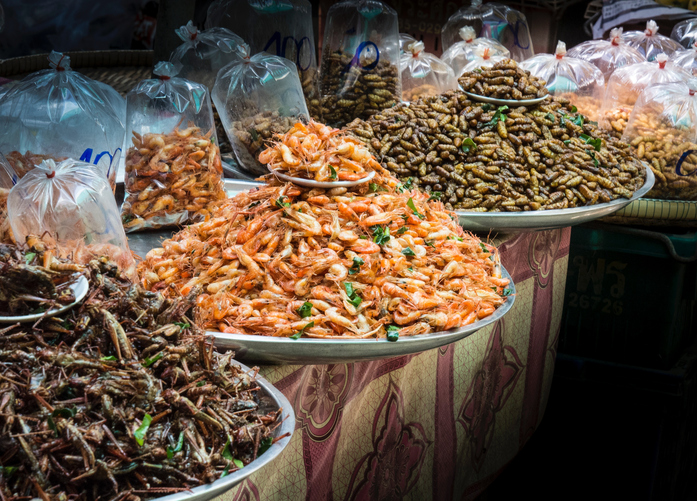Experts and international organisations have been warning us for years that the current rate of animal meat consumption is unsustainable and is causing serious problems for the planet and its species. The possibility of eating insects came to our attention as a rumour several decades ago but, in recent years, it has evolved into an already-commercialised product that’s being presented as a practical option for fighting global hunger and providing optimum levels of protein.
On an environmental and health front, there are compelling reasons to opt for insect protein, but even so, consumers are still resisting insects as food because, culturally, we’re just not used to it.
In 2013, the United Nations carried out a complete report in which it recommended the daily consumption of insects and reminded us that, in many parts of the world, 1900 species of insects are already popular as food, among them beetles, grubs, bees, wasps and ants.
As well as their high protein content (it can reach 43% compared to beef’s 20%), insects also contain a high proportion of “good fats” and are easy to raise (they are practically effort-free when compared to a cattle rearing, for example).
The reduced amount of water needed to cultivate insects – up to one thousand times less per kilo – is another point to bear in mind when talking about this new food option which also boasts the fact that none of the species it includes are at risk of extinction (for now).
What do they taste like?
This is the great unknown for many, even though those who have tasted them say they aren’t disgusting. They have compared the taste of some larvae to bacon, for example, and toasted crickets are similar to toasted sunflower seeds.
Very soon, we’ll be able to taste them ourselves at our local supermarket. In Spain, we expect to see energy bars made from insect flour going on sale this year. A pioneering start-up called Insecfit, supported by Mercadona’s Chairman, Juan Roig, will attempt to make a name for itself by bringing them to market.
On January 1st, the commercialisation of insects as food was passed into law, and they are already sold in six European countries (Belgium, United Kingdom, Holland, Austria, Denmark, and Finland).
Now you know, the question is no longer how but when? Would you be willing to discover these new tastes and textures?







